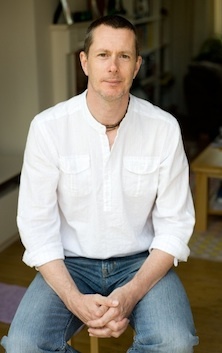At The Toolbox, we believe that the adage that education is the great equalizer can be suitably accompanied by the theory that technology is the great democratizer, at least when it's put in the right hands. Social entrepreneur and technologist, Ken Banks, is living proof of this. He's not simply a triple threat in the social change realm. He's a multiple threat with a seasoned background of 25 years in IT, 20 years of development experience in Africa, 10 years in the mobile industry, and a degree in social anthropology. As the founder of kiwanja.net, which helps change makers better harness information and technology, and the creator of FrontlineSMS, a text messaging platform used by nonprofits in over 140 counties, Ken has deep insight into what works and what doesn't in creating tools to aid social change. He recently launched the new project website for Means of Exchange, a global initiative focusing on how everyday technologies can be used to democratize opportunities for economic self-sufficiency and rebuild local communities.
Topping this off, Ken recently published a book on social innovation titled, The Rise of the Reluctant Innovator.
We caught up with Ken to get his expert opinion about the tools shaping social change.

TB: Are there tools you wished existed to help your initiatives?
KB: With Means of Exchange, I'm interested in exploring how we might use innovative technologies to help reconnect communities with local businesses, local resources, and each other. It's all about building resilience, and buffering them from future economic shocks. There are many apps out there (online, and mobile-based) which help people do favors for each other, for swapping, bartering and so on. But many are hard to use and not well thought-out, or they fail at making those things meaningful to younger people. I'd love a tool which managed to capture all the activities that people do in this area, and that helps score them in some way.
TB: What is the greatest potential in regards to technology in this field?
KB: I believe the biggest role technology is playing today is in its ability to empower local problem owners to develop solutions. Historically, particularly in the development sector, outsiders have been seen as the ones with the best answers because they've had all the best resources, and the best access to the information to make use of them. The internet has changed much of this, as has the mobile phone. A student in an African university can now study computer science, learn to code, and write an app which solves a social problem in his or her village. The mobile phone is the platform, and these are finding their way into even the most remote rural areas. So, we live in an incredibly exciting time, one which is turning development on its head (and that's a good thing). I touch on this again in the next question.
TB: What are the greatest dangers or pitfalls that you have seen or can imagine concerning technology and social good?
KB: Many of the bigger dangers lie in the rush to try and close the 'digital divide'. The rate of innovation in the technology sector, particularly in communications and home entertainment, is as high as it's ever been. Armed with iPads, tablets and other high-tech devices and services, development workers rush off into the developing world in search of problems that their technology might fix. This is clearly not the right way of going about it.
Many of the bigger challenges, at least in a development perspective, are behavioral and there's a need for many people working in the Information and Communications for Development (ICT4D) sector to recognize that there's a shift taking place. As more and more students across continents, such as Africa, graduate with computer science degrees, and as increasing numbers of innovation hubs spring up across the continent, and as mobile phones continue to penetrate deep into rural areas, increasing numbers of home-grown and local technology solutions to problems are emerging. It's hard to argue against a shift which sees people solving their own problems, rather than outsiders coming in with often little real understanding of them.
At the same time, technology continues to be hyped as a solution to almost every problem everywhere across the developing world. I think we need to be a little cautious that we don't look at problems with technology-tinted glasses. The solution to a particular problem might be a crayon, or a blackboard, and we're less likely to develop appropriate solutions if we start off with preconceived ideas that the answer is, for example, a mobile phone. And, finally, we need to recognize that low-technology is not a poor or cheap substitute for "real solutions." At the end of the day, technology has to be sensitive and appropriate to the geographical, economic, technical, and cultural conditions of its users. If it's not it will often fail.
Check out Ken's tool FrontlineSMS here.
No comments:
Post a Comment